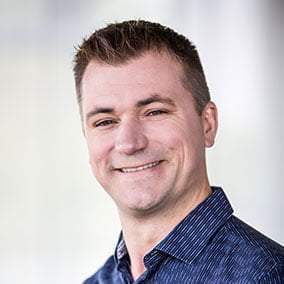Immediate Availability - Open 7 days a week - day, evening and weekend appointments
Immediate Availability - Open 7 days a week - day, evening and weekend appointments

(7-minute read)
One day my partner walked into our living-room to find me curled up, fetal position on the floor, tears flowing down my face like a river escaping a dam. My body was rigid, my chest heaving as it gasped for air soon to be exhausted in a muffled wail. I was full on ugly crying. And it felt really good and really bad at the same time. As a mechanism for self-soothing, crying can help us to restore our emotional equilibrium, of which I had been grasping to keep in balance for months - unsuccessfully I might add. Much like the lane sensor alarm that retrieves your attention from where it has wandered that led your vehicle into potential danger, for quite some time my body had been sending out signals of distress. Metaphorically, I was driving recklessly without regard for my built in alarm system. The day my partner found me on the floor, was the day I crashed.
At the time I had been working for a growth stage Silicon Valley tech start-up, that like most start-ups prided itself on moving quickly. Citing Glassdoor reviews, it was an “ever-changing fast paced environment” with “long hours and not much structure in systems and processes.” “A lack of autonomy and empowerment was felt by many people in the company.” At the same time, it was a “purpose-driven organization with very smart and compassionate people.” This was the environment in which I had somehow learned to ignore my body’s distress signals within. As a result, I crashed. I burned out - not because I couldn’t hack it (as is the most common myth with burnout), but because there was a mismatch in the demands of the work and my capacity as a human (as cited to be the cause of burnout in professor Christina Maslach’s research on the topic).
In this environment I gave all of myself and it never felt like it was enough. In trying to meet the high job demands with too few resources, I had neglected the blatant alarm signals for so long that I didn’t know how to recover back into the lane of balance. By the time I crashed, I had completely lost my sense of vitality and ability to find joy in other areas of my life. As a remote worker, I was waking up and diving straight into work on my computer. I skipped breakfast and ate lunch while attending meetings. I was constantly connected to all things work via Slack and email. Regularly I would respond to colleagues while waiting for my yoga class to begin, think about work while moving through the yoga postures, and then send more emails after class was finished. On any given day, it felt like 98% of my thoughts were being consumed by work. Can you relate?
Striving to find comfort in being curled up on the living-room floor or my bedroom crying became a regular occurrence. One day I stopped to ask myself: How long can this go on? Is this the life you imagined for yourself? In reflection, I discovered there were many aspects of my job and the organization that wasn't working for me. Through this conversation with myself (and many more with my therapist) I decided the strangely accepted unrelenting culture of an early stage start-up wasn’t what I wanted - at least not at this point in my life. And so I returned to what I was doing before I stepped into my cyclonic start-up experience - enriching others’ lives as a leadership and life coach. And back to a time in my life when I felt more in control! What has been your experience? Are there aspects of your life that don’t seem to be working for you? That feel out of control?
I encourage you not to take the same path I did in waiting until life was so unbearable that it breaks you. If you happen to find yourself in a position with the time to reflect and re-imagine your life, I recommend contemplating these questions:
There is no right or wrong answer. What you decide to keep may very well be the same thing I decide to let go of. As a coach, I invite my clients to dig deep down and get as real with themselves as they can. And no matter what the response, I emphasize they be kind to themselves. Always be kind. Deciding to let go of something that has for so long been an ingrained part of our identity can be a difficult experience.
For example,
There is no such thing as a wrong way to approach life - just your way! I believe in many definitions of success. And that we, rather that society, must come to define it for ourselves. How else could we possibly ensure a true values alignment with our future aspirations?
In reflecting on the questions above, it can be helpful to create a list (or table) like the one shown below I use with my clients. This example is built from my own experience:
Some of the habits and behaviors noted above are now routine in my life (ie. Saturday hikes) while there are others I continue to cultivate. Paraphrasing Mahatma Gandhi, your behaviors become your habits, your habits become your values, and your values become your destiny - when you learn to transform your habits, you can transform your life. If you’ve ever tried to eat healthier, get to the gym more often, be kinder to your spouse, or stop worrying so much, you know that transforming habits is easier said than done.
That said, it can be made easier by working with a One Life personal coach or therapist in Calgary who can give you the evidence-based tools and strategies needed to transform any area of your life. Did you know, most coaches and therapists work with other coaches and therapists on their own life goals? It’s because they know the value a trained professional with an objective view can bring!! (I have both a coach and a therapist myself)
If the normal you left behind is not the normal you want to return to, consider reaching out. At One Life, we can match you with a coach or therapist to optimally support your next (or first) step to crafting a way of being that is more aligned with your present day values.
Darrah Wolfe
Professional Certified Coach
